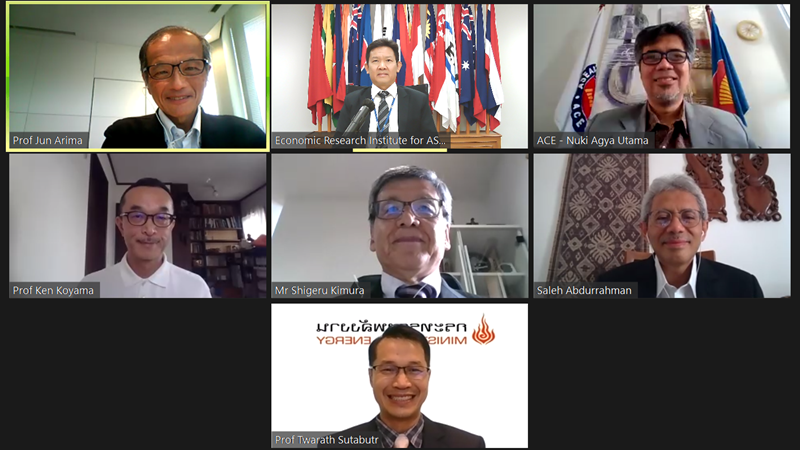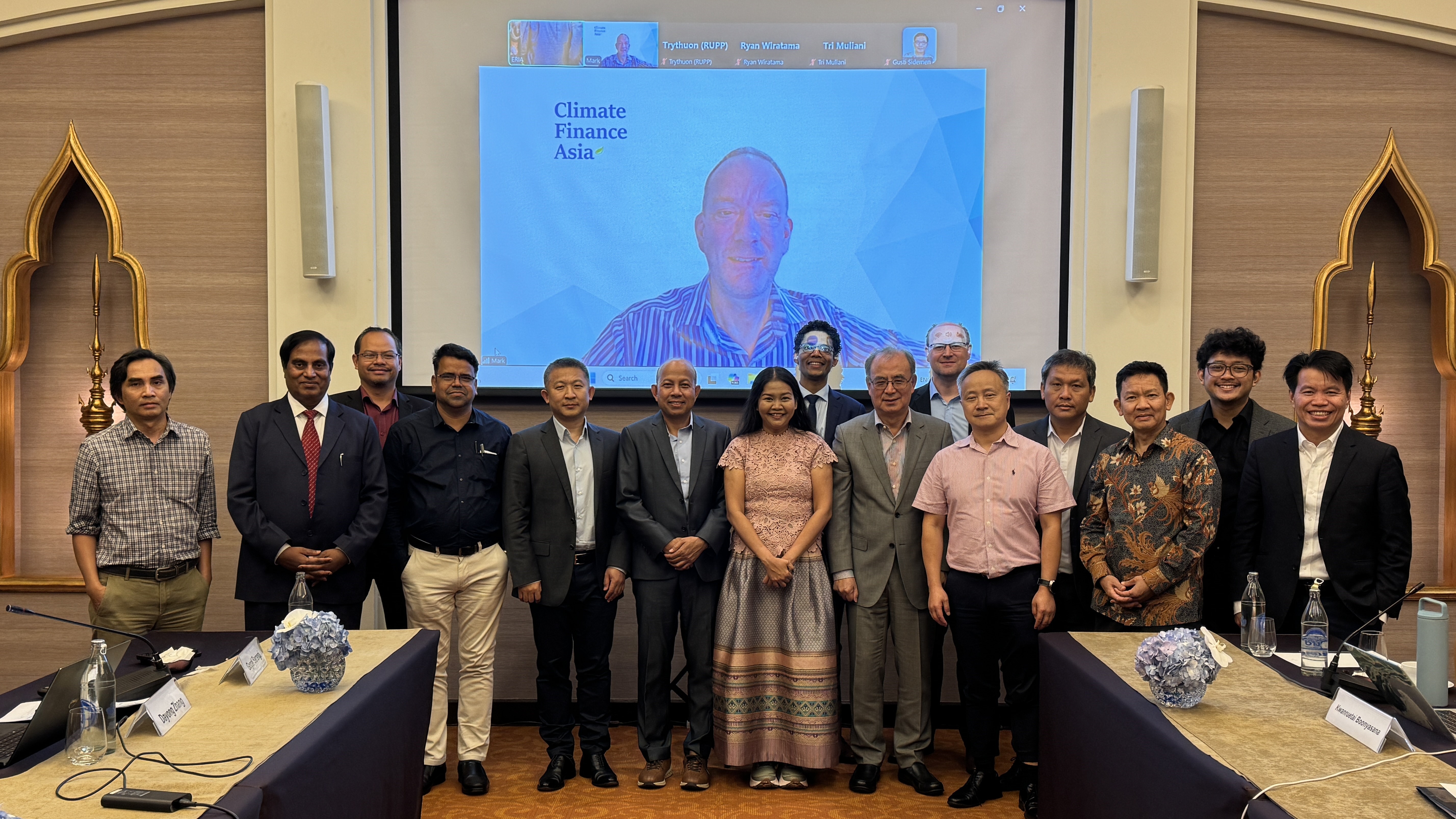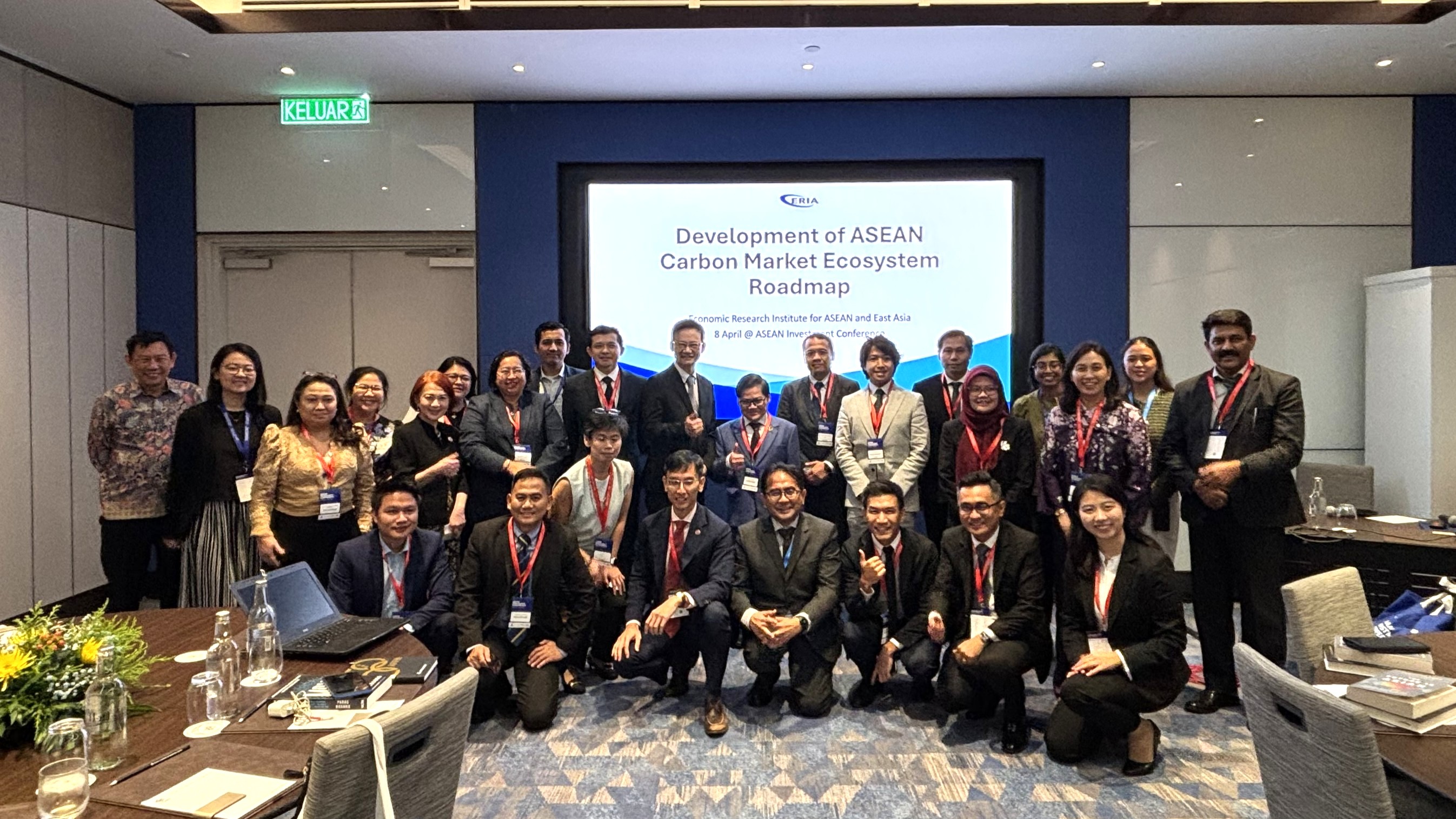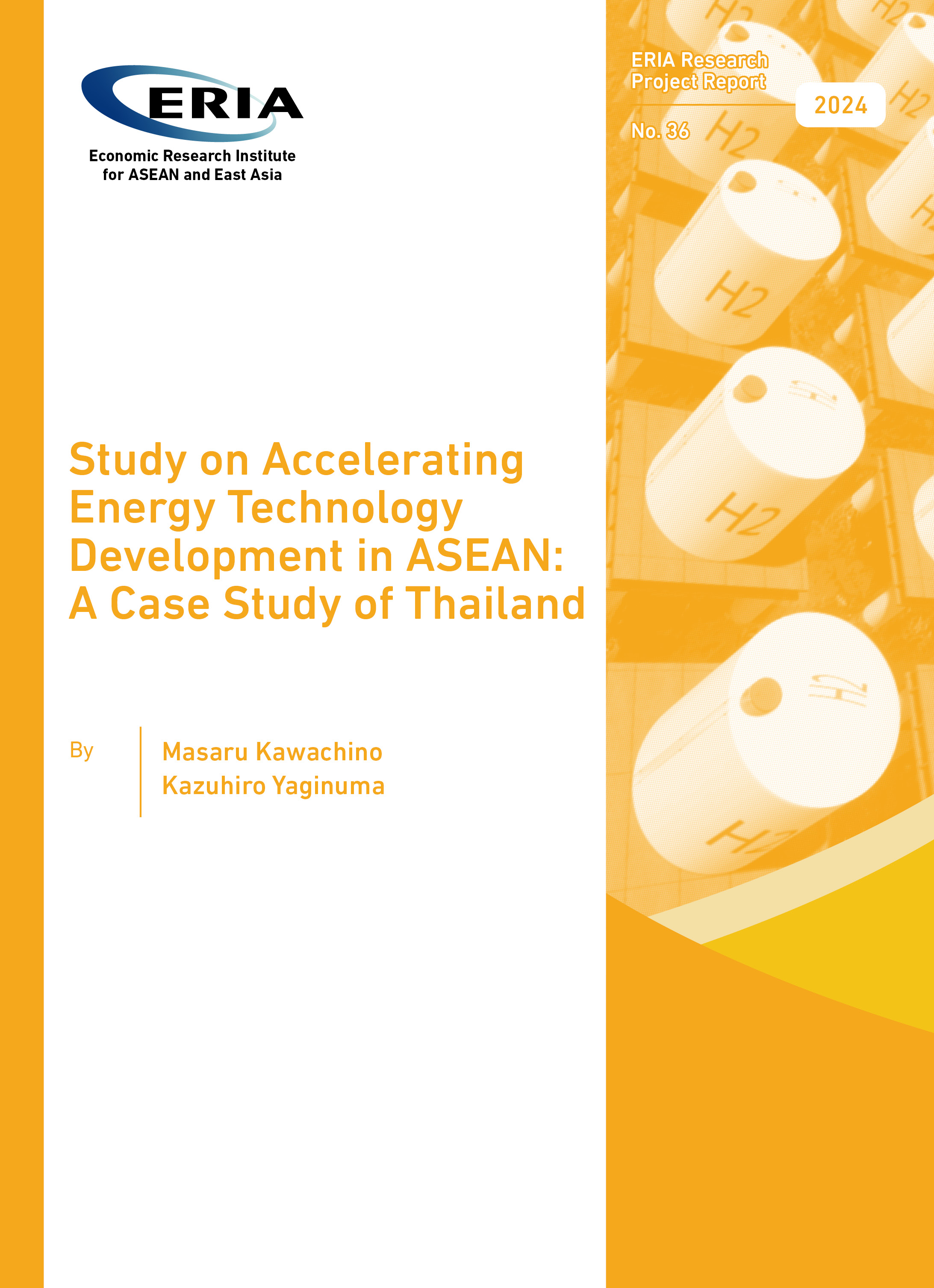The Energy Situation in ASEAN Post COVID-19: An Online Workshop
Date
10 September 2020Category
OthersShare Article:
Print Article:
Jakarta, 10 September 2020: The Economic Research Institute for ASEAN and East Asia (ERIA), in collaboration with the Institute of Energy Economics Japan (IEEJ), hosted an online workshop on the energy situation during and post COVID-19 in the ASEAN region. Ten eminent energy and economy experts, government officials and academics shared their insights on possible challenges and opportunities that the ASEAN region will face in order to secure energy supply and demand as well as its affordability.
During his opening remarks, Prof Jun Arima, ERIA Senior Policy Fellow for Energy and Environment, emphasized how the unprecedented situation of COVID-19 has pushed countries into an economic recession and has delayed many countries’ climate agendas. Lower fossil fuel prices during the pandemic will delay efforts to support an energy transition to clean and renewable energy due to their higher price compared to fossil fuels. Green economy schemes, including the energy resources, have been suggested by international fora such as the United Nations, the International Energy Agency, and the Organization for Economic Cooperation and Development. Prof Jun Arima then moderated throughout the workshop.
Second opening remarks were delivered by Dr Ken Koyama, Chief Economist and Managing Director at the IEEJ. He pointed out that the region has faced challenges on energy and environment for many years which are now exacerbated by COVID-19. To some extent, lower prices of oil could be good news for developing countries, however they could jeopardize future sustainability. Moreover, not only issues on energy supply and demand, geopolitics and digitalization should be taken into account. Digitalization may significantly increase demand for electricity, making it all the more important to secure energy stability including its supply, price, and sustainability.
The first speaker was Dr Han Phoumin, ERIA Energy Economist, who highlighted that some ASEAN countries are already facing challenges of increasing national debts and depleted national savings in order to protect the national economic situation from the impact of COVID-19. In terms of energy security, he is suggested promoting the use of natural gas as a transitional fuel in ASEAN, without putting aside accelerating the use of renewables and energy efficiency for medium to long-term development. Furthermore, the declining price of fossil fuel should be taken as an opportunity for ASEAN leaders to reform energy policy such as fossil fuel subsidies and green stimulus packages to create long-lasting impacts in lowering emissions.
The second speaker was Dr Ken Koyama from IEEJ, who addressed two main points. First, the lower price of fossil fuels should help ASEAN prepare for future energy instability. He suggested that investing in energy is a must and that the investments should also cover low carbon energy systems. Secondly, the pandemic might cause an energy revolution, for example reduction in transportation usage, changes in lifestyle which impact energy supply and demand, and digitalization that could reduce future mobility. After COVID-19, climate change and decarbonization issues will continue to be important challenges, however, human survival, the economy, and health will be the sectors needing immediate actions to achieve recovery.
The third speaker was Dr Nuky Agya Utama from the ASEAN Center for Energy (ACE) who said that lower energy demand has caused power plants and the utility companies to adjust various factors to stabilize supply and demand within the ASEAN region. The region needs to consider focusing on energy security and affordability which requires intersectoral cooperation. Also, this is an opportunity to increase renewable energy in the overall primary energy supply. In the long run, renewable energy will be increasingly competitive to support energy security within the region.
The fourth speaker was Dr Twarath Sutabutr, Inspector-General at the Ministry of Energy, Thailand. Dr Sutabutr highlighted several points regarding energy security and recovery plans for the post COVID-19 situation in Thailand. During the pandemic, Thailand imported LNG to secure the energy supply. Also, connectivity with neighboring countries allowed Thailand to import electricity from neighbors as well as export it to Myanmar due to the increase power demand at the Myanmar border. For the recovery plan, there are two points of policy actions: first, recovery efforts on four main sectors: tourism, health care, food, and global supply chain. Second, new business investment in renewable energy and energy efficiency, providing for an energy transition to low carbon technology.
The last speaker was Dr Saleh Abdurrahman, Special Adviser for the Indonesian Ministry of Energy and Mineral Resources, who explained the Indonesian energy situation during pandemic. He said that around 60% of manufacturing industries were hit hard by the pandemic, decreasing electricity and fuel consumption in the first quarter. However, starting from August, fuel consumption was nearly normal, especially in greater Jakarta, due to the ‘new normal’ regulations. Domestic consumption, which is still relatively high, helped the economy to keep running. However, there are still several issues to address, such as increased international support regarding low carbon technology for ASEAN and developing countries, and how policy makers maintain climate issues as a priority during and after pandemic.
In closing, Shigeru Kimura, ERIA Special Advisor on Energy Affairs, delivered his remarks, mentioning that COVID-19 has wrought severe damage to the economy, including the energy sector. It creates uncertainty regarding countries’ development after COVD-19, including energy growth and CO2 emissions. The ‘new normal’ promises the era of digitalization, but this might create new challenges for some ASEAN countries whose economies depend on manufacturing products or who have low internet penetration rates. Post COVID-19’s economic recovery will be supported by huge government budgets, and energy consumption and CO2 emission will likely return to pre-pandemic levels. In this regard, governments need to pay attention and should consider allocating budgets to energy sector to promote energy efficiency and renewable energy penetration. Additionally, he emphasized key technologies that are important for ASEAN, such as a new generation of vehicle (Electric and Fuel-Cell Vehicle), CCUS/Carbon Cycling, and Hydrogen.








